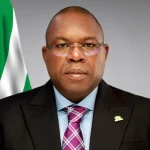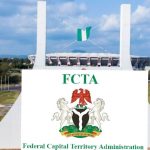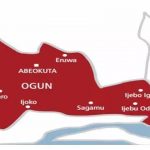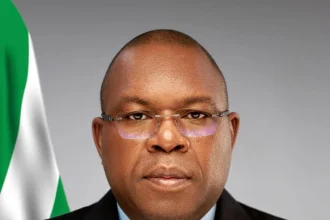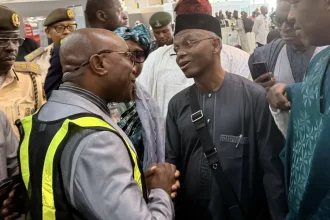President Bola Tinubu on Thursday asserted that his administration is making “undeniable progress” in economic reform, despite widespread economic hardship and soaring costs of living across Nigeria.
The president made the remarks in a nationwide broadcast commemorating his second year in office.
“Despite the bump in the cost of living, we have made undeniable progress. Inflation has begun to ease, with rice prices and other staples declining,” Mr Tinubu said during the address.
He acknowledged the severity of the cost-of-living crisis, which many attribute to abrupt policy decisions made by his administration.
“Today, I proudly affirm that our economic reforms are working. We have stabilised our economy and are now better positioned for growth and prepared to withstand global shocks,” he said.
Mr Tinubu praised Nigerians for their patience amid the economic strain, while justifying his policies as necessary for long-term stability.
“These reforms are designed to reduce the cost of living, promote economic justice, and build a business-friendly economy that attracts investment and supports every Nigerian. Together, we are creating a system where prosperity is shared, and no one is left behind,” the president stated.
Since assuming office, Tinubu has implemented two major policy changes: the removal of the fuel subsidy and the unification of exchange rates.
These moves triggered sharp hikes in fuel prices—from N145 to over N1,000 before settling around N900—and caused a steep depreciation of the naira, which fell from about N700 to over N1,600 against the US dollar.
These economic adjustments have fueled skyrocketing food prices, transportation costs, and overall inflation, currently at 24 percent.
The impact on ordinary Nigerians has been severe. The 2025 Global Report on Food Crises, produced by the Global Network Against Food Crises in collaboration with UNICEF and the Food Security Information Network, identified Nigeria as having the largest increase in acute food insecurity worldwide in 2024.
The report noted that 6.9 million more Nigerians are now experiencing high levels of food insecurity, bringing the total to 31.8 million.
Despite government claims of progress, global institutions continue to raise concerns.
The International Monetary Fund has highlighted ongoing challenges of poverty and food insecurity under Tinubu’s leadership. Similarly, the World Bank’s April 2025 Africa Pulse report named Nigeria as the country with the world’s largest population of extremely poor people, forecasting an increase in poverty rates through 2027.


